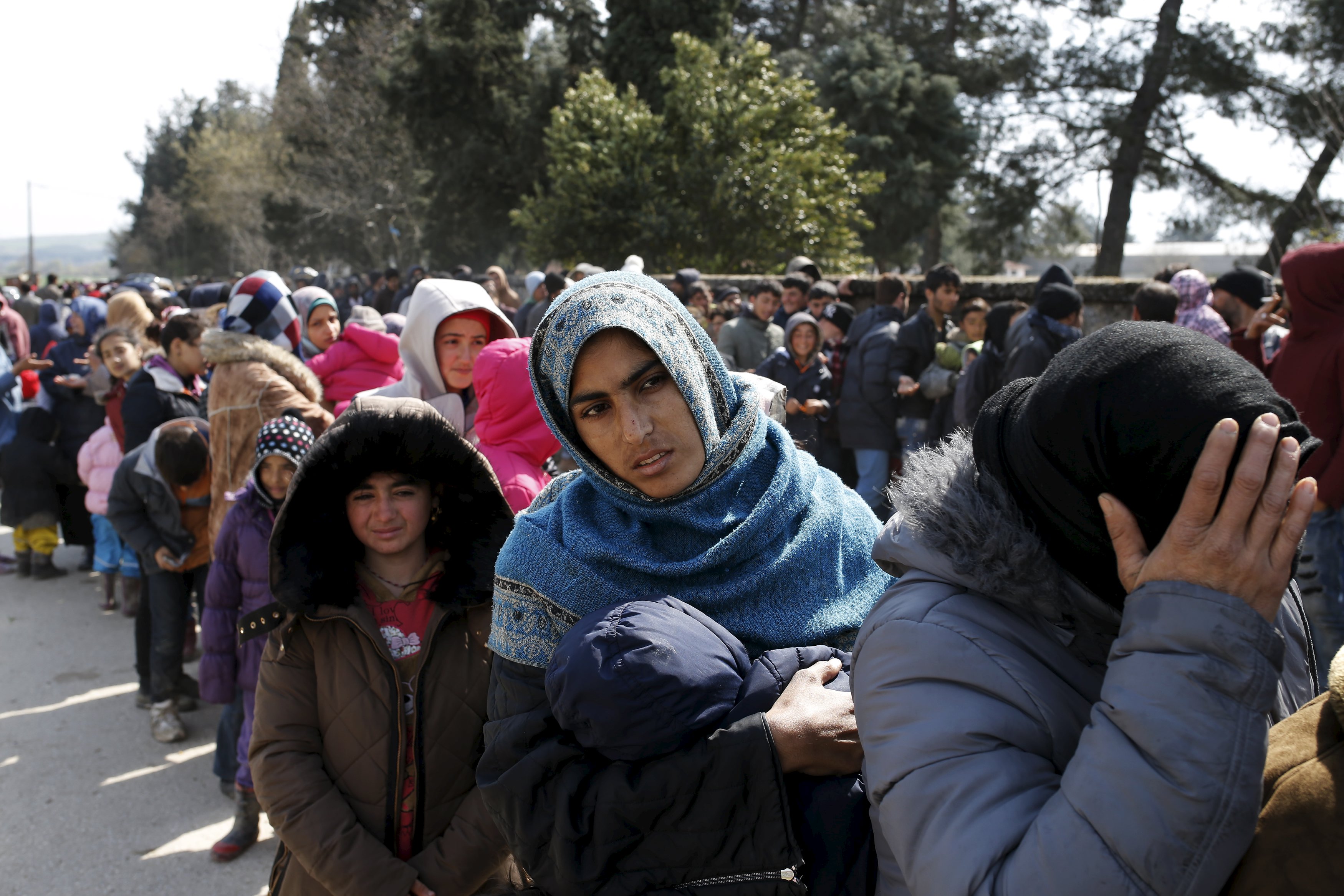
Some officials in Europe see Russia's hand in the rising migration crisis, accusing the Kremlin of exacerbating anti-Muslim sentiment to benefit right-wing parties at a fragile moment for the European Union.
Even before the latest terror attacks in Brussels, anti-Muslim and anti-refugee sentiment in Europe had been on the rise. Most of the refugees arriving in Europe are escaping war and poverty in the Middle East and seeking a better life in the West. But according to European officials, other migrants are traveling into the Nordic and Baltic states from Russia and are not fleeing the fighting in Syria, Iraq or Afghanistan, but rather have been living in Russia and are being encouraged by the Kremlin to join the tide in Western Europe.
Speaking to an audience at the German Marshall Fund Brussels Forum last weekend, Estonian President Toomas Hendrik Ilves alleged that these migrants often hide their status as permanent residents of Russia.
“You’ve seen several thousand coming from Finland across the Russian-Finnish border,” he said. “There is something very fishy going on.”
Russia encourages these migrants, according to Ilves and other European officials at the forum, because they strain European governments and stoke anti-Muslim sentiment that benefits the far-right parties Russia has supported. Pro-Russian parties have gained influence in Slovakia, Greece, Hungary, France and elsewhere. They tend to support the weakening of European Union institutions and favour closer ties to Russia, including through the end of sanctions.
Russia’s campaign of airstrikes in Syria, which has largely targeted civilian areas, also adds to the waves of Muslim migrants entering Europe through Greece. General Philip Breedlove, NATO's supreme allied commander in Europe, said earlier this month that Russia was “weaponising migration,” as a means to “overwhelm European structures and break European resolve.”
Ilves added that anti-immigrant fervor is helping to raise support for right-wing populists in “virtually every single European country today” and that if more of them come into power, international agreements that the US values could come unraveled.
European leaders who share some of Russia's goals have capitalized on the anti-refugee momentum. Zsuzsanna Szelenyi, a member of the parliament and the opposition party in Hungary, told me that her nation is one example, as the prime minister has won support for anti-democratic and anti-EU policies.
“There’s not a single refugee in Hungary, but his popularity based on this anti-refugee campaign is rising,” she said. “The Russians use it to distract Europe, and I think it is successful.”
Vladimir Chizhov, Russia’s permanent representative to the European Union, told me that Ilves’s claims about the number of Muslim migrants coming from Russia into Europe were exaggerated. The overall theory that Russia is stoking migration to sew political unrest in Europe, he said, “is the product of a very inflated mind.”
In January, Russian Foreign Minister Sergei Lavrov publicly accused the German government of covering up a gang rape of a 13-year-old girl by Muslim refugees in Berlin.
Berlin prosecutors said such a rape never occurred. It was first reported in the Russian media, after which Russian-speaking Germans and right-wing activists protested in the streets of several German cities. Lavrov’s comments were seen in Europe as intentionally pouring fuel on the fire.
“That is instrumentalising a tragedy in Europe,” said Ilves. “And that sums up the situation in Europe right now.”
Even if Russia is not pushing its own Muslim residents over the border, said Senator Jeanne Shaheen, Moscow’s goal is to create instability in Europe as a means of creating a relative advantage.
“Whether that’s deliberate or inadvertent, Russia still achieves the same outcome," the New Hampshire Democrat said. "And I think Russia is going to look at agitating wherever they can to create disaffection in Europe.”
Europe has a number of problems, including the radicalisation of Muslim youth, the threat of terrorism, the influx of refugees and the economic strains on member states. Russia did not initiate any of these problems, but it is making them all worse.
In destabilising Europe, Russia is trying to roll back the post-World War II order that Europe and the US built over decades. The end game is to pull as many European countries as possible into the Russian sphere of influence and away from the West. - Bloomberg View